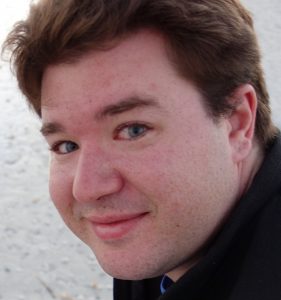
Dr. Rick Wash, Michigan State University, will present a keynote lecture on Thursday, November 11, 2021, at 2:00 p.m., via Zoom online meeting. An expert on the human aspects of cybersecurity, Dr. Wash is an associate professor in the Department of Media and Information at MSU. The lecture is presented by the Institute of Computing and Cybersystems (ICC) Human-Centered Computing (HCC) research group.
Talk Title
How People Detect Phishing Messages: Using Email in the Presence of Adversaries
Talk Abstract:
Phishing messages are communications, such as emails, where someone sends a message pretending to be something or someone they are not in order to get you to do something you normally wouldn’t be willing to do. Phishing is one of the leading methods of attack by cybercriminals and in information warfare. It is commonly used to install ransomware, and was previously used to disrupt elections. To stop phishing, people need to be able to figure out when an email in their inbox is fraudulent. I will describe how IT experts detect phishing emails in their own inboxes. Then I will compare that with how non-experts detect phishing. Finally, I will discuss how this human work integrates with and complements the ways that computers detect phishing, and provide advice for better ways to train people to detect phishing.
Speaker Bio
Dr. Rick Wash is an expert on the human aspects of cybersecurity. He is an associate professor at Michigan State University in the Department of Media and Information. He studies how people think about their interactions with modern technology, with an emphasis on the work people do to protect themselves from malicious actors on the Internet.
His research has won the Impact Award at SOUPS for significant long-term impact on the usable security and privacy research and practice, a Google Security and Privacy Research award, and an NSF CAREER award. His work is supported by over $2 million from the US National Science Foundation. He completed his PhD at the School of Information at the University of Michigan.